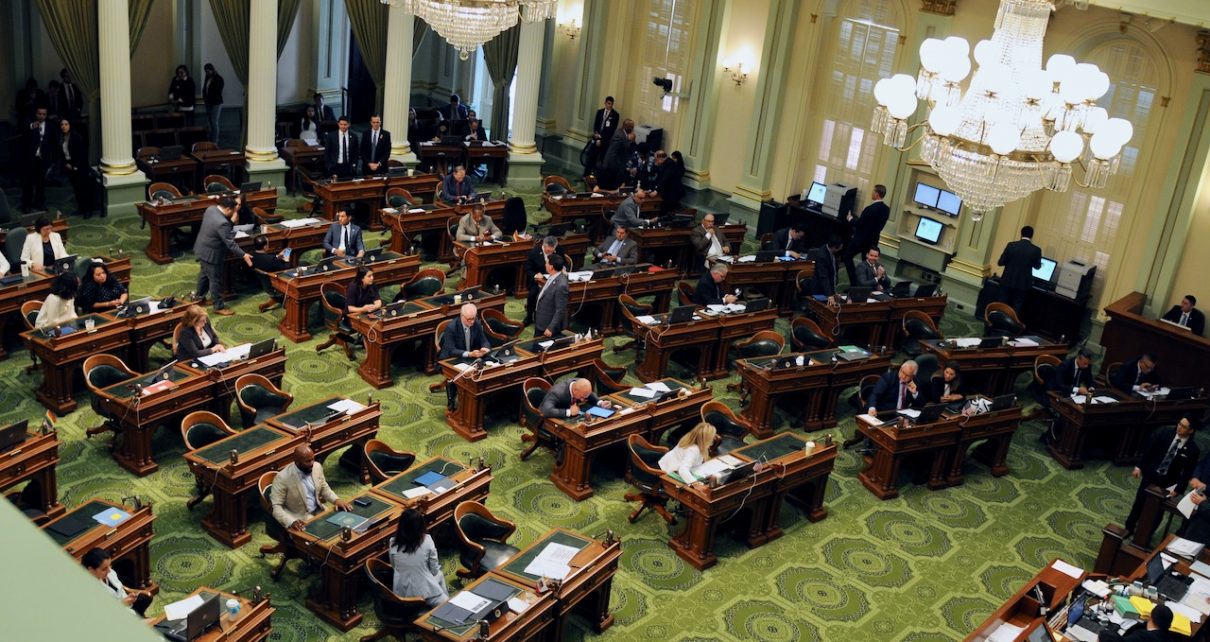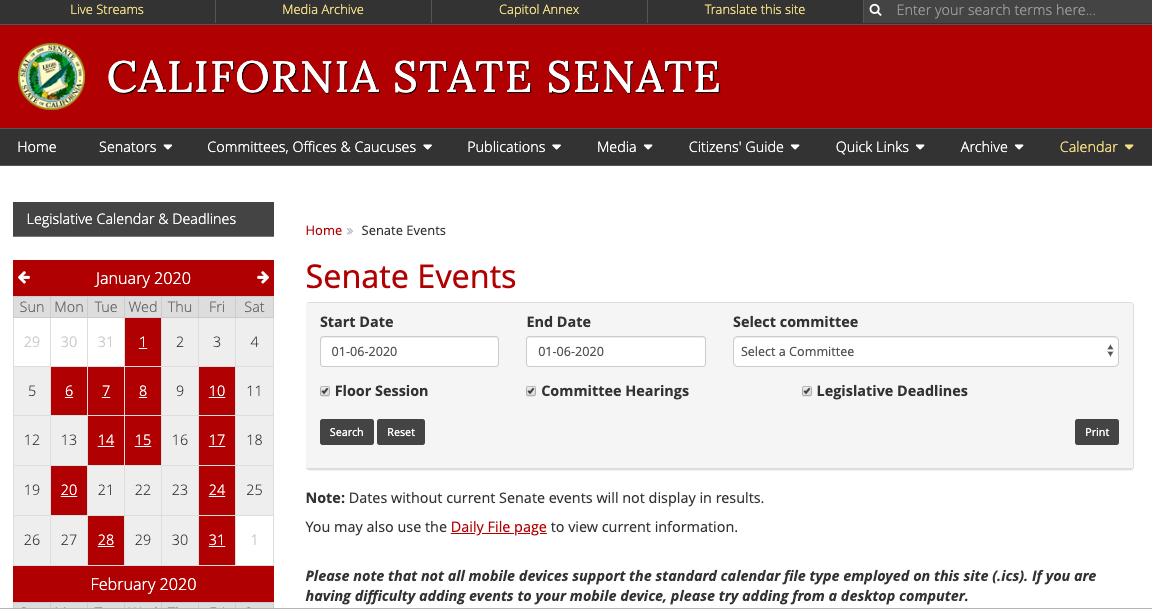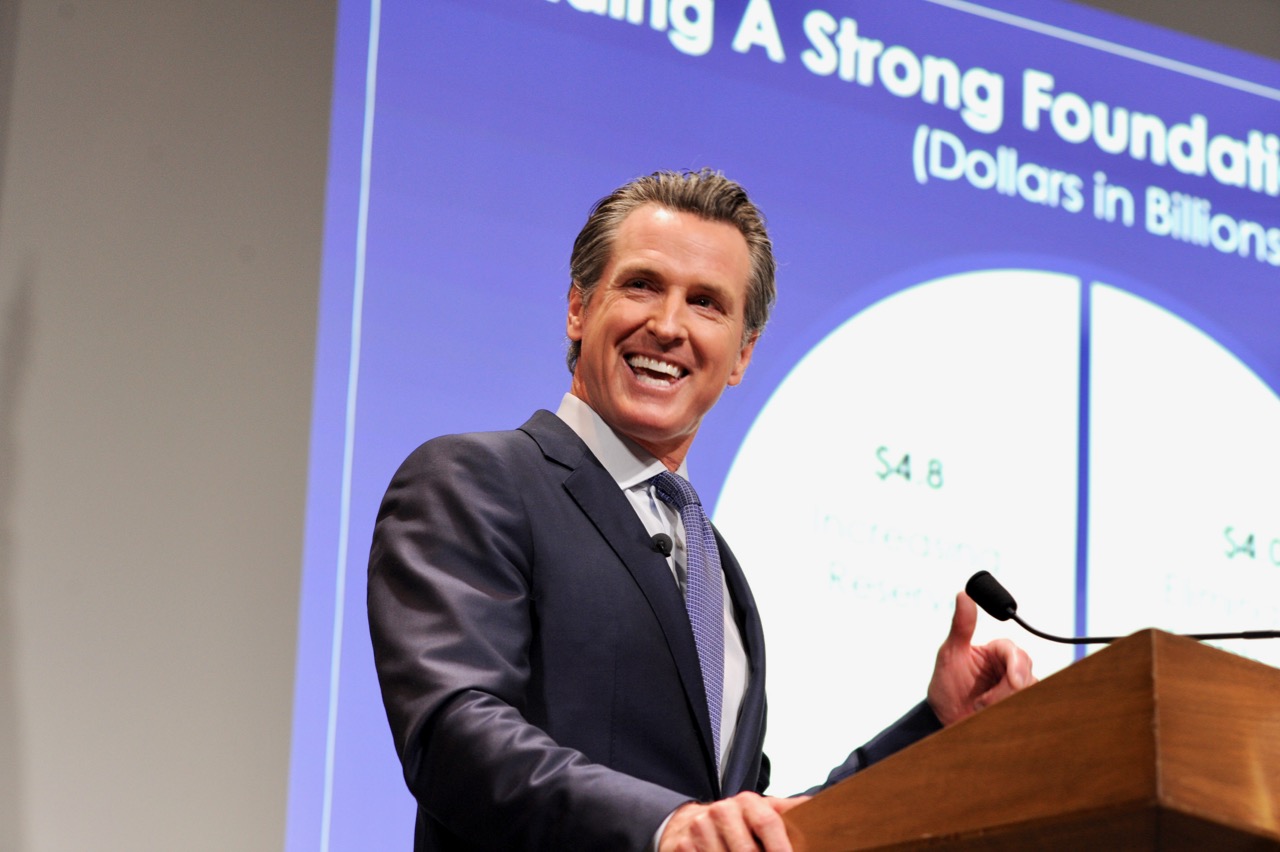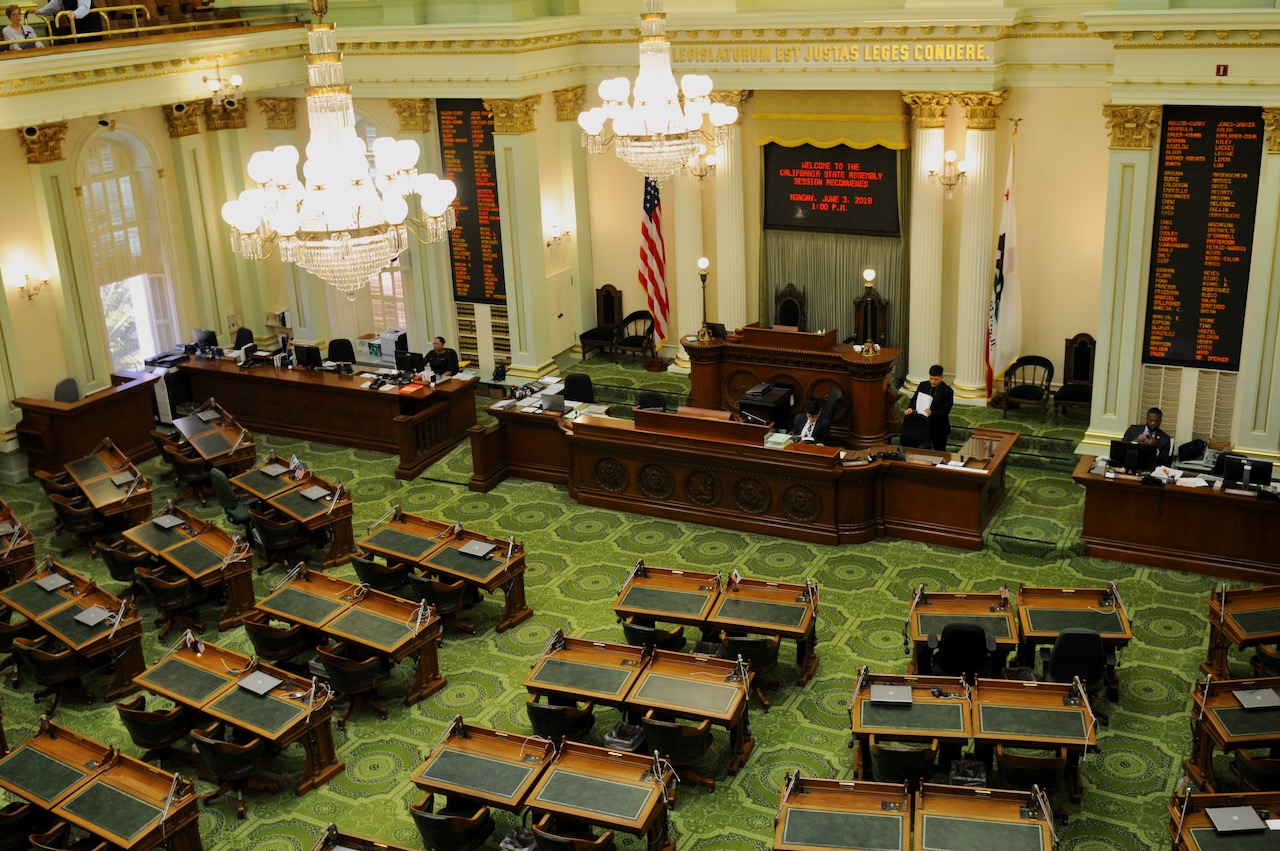
California State Assembly Chamber. (Photo: Kevin Sanders for California Globe)
Convening the Next Legislative Session December 7th
It is designated the 2021-2022 Legislative Session
By Chris Micheli, October 21, 2020 2:49 am
On Monday, December 7, 2020 at 12 noon, the California Legislature will convene its next two-year session. Although the new session begins in December 2020, it is designated the 2021-2022 Legislative Session. What are the legal requirements of convening the new session?
California’s Constitution, in Article IV, Section 3(a), requires that “The Legislature shall convene in regular session at noon on the first Monday in December of each even-numbered year and each house shall immediately organize. Each session of the Legislature shall adjourn sine die by operation of the Constitution at midnight on November 30 of the following even-numbered year.”
Pursuant to the constitutional mandate, California Government Code Title 2, Division 2, Part 1, Chapter 1.5, Article 2, Sections 9020 – 9026.5 deals with Meeting and Organization of the Legislature. Among its provisions are:
Section 9020, which provides that “The Legislature shall convene in regular session at the City of Sacramento at noon on the first Monday in December of each even-numbered year, and each house shall immediately organize.”
Section 9022, which provides the following for the State Senate: “At the day and hour appointed for the assembling of any regular session of the Legislature, the President of the Senate, or in case of his absence or inability, the senior member present, shall take the chair, call the members and members elect to order, and have the secretary call over the senatorial districts, in their order, from which members have been elected at the preceding election. As the districts are called the members elect shall present their certificates, take the constitutional oath of office, and assume their seats. If a quorum is present, the Senate may then elect its officers.”
Section 9023, which provides the following for the State Assembly: “At the day and hour appointed for the assembling of any regular session of the Legislature, the Chief Clerk of the Assembly, or in case of his absence or inability, the senior member elect present, shall take the chair, call the members elect to order, and call over the roll of counties in alphabetical order. As the counties are called the members elect shall present their certificates, take the constitutional oath of office, and assume their seats. If there is more than one senior member elect present and the senior members are unable to agree as to who shall the session to order, the Attorney General or one of his deputies shall call the session to order. If a quorum is present, the Assembly shall then elect its officers, and there shall be no other business, motion or resolution considered before the election of the Speaker, save and except a motion to adjourn or a motion for a call of the house.”
Section 9025, which provides that “an entry of the oath taken by members of the Legislature shall be made on the journals of the proper house.”
Prior to December 7, the four political parties in the two houses usually organize themselves. The Assembly has a specific rule on this, while the Senate does not.
Assembly Rule 13.1, titled “Organization of Party Caucuses,” provides the following: “Within two days after the general election held in November of each even-numbered year, the caucus of the political party having the greatest number of Members in the Assembly, and the caucus of the political party having the second greatest number of Members, each may meet for the purpose of selecting their officers for the next regular session. The convening of the respective party caucus meetings shall be at the discretion of the Speaker and the leader of the caucus of the political party having the second greatest number of Members. The rules and procedures of each caucus shall be determined by that caucus, but may not be inconsistent with these rules.”
- Liability for a Deceased Spouse’s Debt - March 4, 2026
- Wildlife Management Areas - March 3, 2026
- County Revenues for Fish and Game - March 3, 2026




